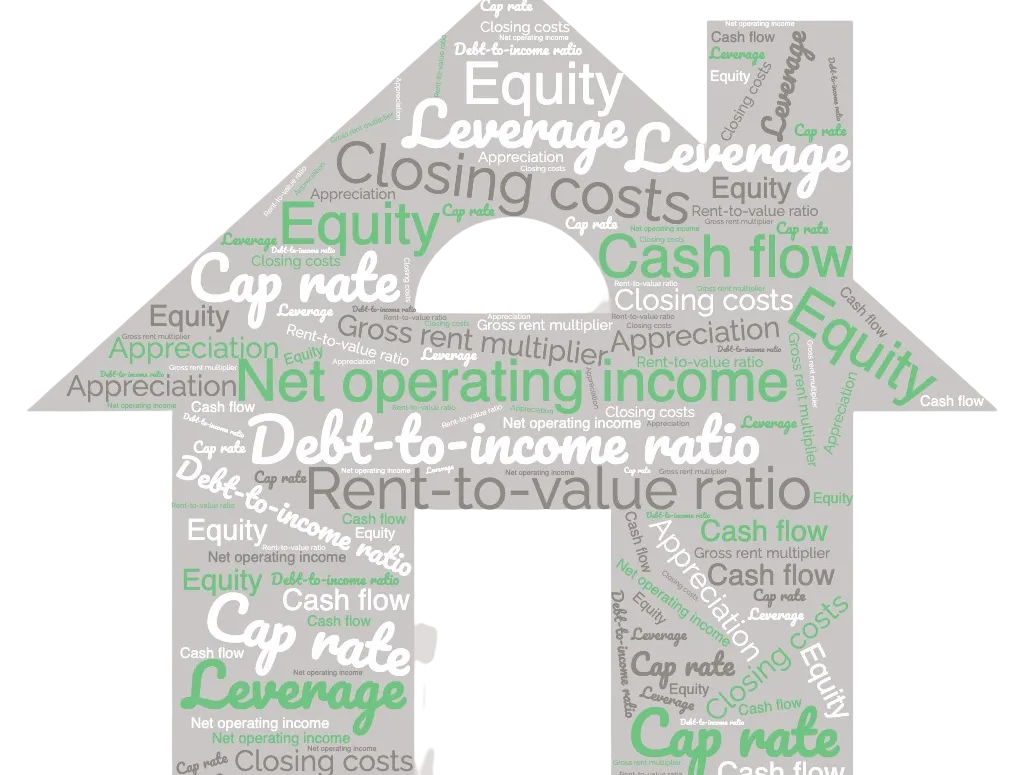Real Estate Investing Terms
Appreciation: This refers to the increase in the value of a property over time.
Cap rate: The capitalization rate is a measure of the rate of return on a real estate investment property. Calculate it by dividing the property’s net operating income by its current market value.
Cash flow: Cash flow is the difference between the income a property generates and the expenses associated with owning and operating it.
Closing costs: Closing costs are the fees and expenses associated with buying or selling a property, such as title insurance, legal fees, and property taxes.
Debt-to-income ratio: This is a measure of the amount of debt a person has relative to their income. Lenders use it to determine how much a borrower can afford to borrow.
Equity: Equity is the difference between the value of a property and the amount of debt secured by it.
Gross rent multiplier: The gross rent multiplier (GRM) is a measure of the relationship between a property’s sale price and its gross rental income. Calculate it by dividing the property’s sale price by its gross rental income.
Leverage: Leverage is the use of borrowed funds to increase the potential return on an investment. Leverage is often used to buy properties with a small down payment and finance the rest with a mortgage.
Net operating income: Net operating income, or NOI, is a measure of the profit a property generates from its operations. Calculate it by subtracting operating expenses from gross rental income.
Rent-to-value ratio: The rent-to-value ratio, or RTV, is a measure of the relationship between a property’s rental income and its value. Calculate it by dividing the property’s gross rental income by its market value.
In Summary
Knowing the lingo and terms of the real estate investing world is vital to your success in the industry. To continue your investing journey, reach out to Priority Investor Loans and apply today!



